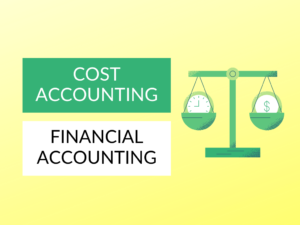Difference Between Accounting and Accountancy
What is Accounting?
Accounting refers to the process of recording, summarizing, analyzing, and reporting financial transactions of an individual or entity. It involves the measurement, processing, and communication of financial information to various stakeholders, including managers, investors, and regulatory authorities.
Examples of Accounting
- Recording sales and expenses
- Preparing financial statements
- Calculating taxes
- Managing payroll
Uses of Accounting
Accounting is used for various purposes:
- Financial decision making
- Performance evaluation
- Planning and budgeting
- Compliance with legal requirements
What is Accountancy?
Accountancy, on the other hand, is the profession or field of expertise that relates to the practice of accounting. It encompasses the knowledge, skills, and qualifications required to perform accounting tasks and provide financial advice.
Examples of Accountancy
- Providing auditing services
- Offering tax consulting
- Assisting in financial planning
- Conducting forensic accounting
Uses of Accountancy
Accountancy is utilized in various ways:
- Ensuring compliance with accounting standards
- Assessing financial risks
- Improving financial controls
- Advising on mergers and acquisitions
Differences between Accounting and Accountancy
| Area of Difference | Accounting | Accountancy |
|---|---|---|
| Educational Focus | Primarily focused on the technical process of recording financial information. | Emphasizes the application of accounting knowledge in providing financial services and advice. |
| Professional Designation | Accountants | Chartered Accountants |
| Scope | Broader as it covers recording, analyzing, and reporting financial transactions. | Narrower as it focuses on the practice and application of accounting principles. |
| Regulatory Oversight | Regulated by professional accounting bodies, such as the AICPA or ACCA. | Subject to additional regulations and standards imposed by government bodies. |
| Employment Opportunities | Various career paths, including bookkeeping, financial analysis, and auditing. | Primarily involves working in public accounting firms or as financial advisors. |
| Professional Services | Providing financial information and reports. | Offering financial advice and specialized services. |
| Representation | Accountants represent the financial position of organizations. | Accountants provide expert opinions on financial matters. |
| Continuing Education | Continued professional development is encouraged for accountants. | Chartered Accountants must continuously update their knowledge through mandatory training programs. |
| Focus on Compliance | Accounting ensures compliance with accounting principles and regulations. | Accountancy ensures compliance with both accounting and legal standards. |
| Responsibility | Accountants are responsible for maintaining accurate financial records. | Chartered Accountants are responsible for providing financial advice and ensuring compliance. |
Conclusion
In summary, while accounting focuses on the process of recording, analyzing, and reporting financial transactions, accountancy involves the application of accounting principles in providing financial services and advice. Accountancy is a subset of accounting that requires additional qualifications and knowledge to perform specialized tasks.
People Also Ask
- What qualifications are required to become an accountant?
- What career opportunities are available in accounting?
- What does an accountant do?
- What services do accountants provide?
- How is accountancy different from finance?
To become an accountant, a bachelor’s degree in accounting or a related field is typically required. Many accountants also pursue certifications, such as the Certified Public Accountant (CPA) or Chartered Accountant (CA) designation.
Career opportunities in accounting include roles such as auditor, tax accountant, financial analyst, management accountant, and forensic accountant, among others.
An accountant is responsible for recording financial transactions, preparing financial statements, analyzing financial data, ensuring compliance with accounting standards, and providing advice on financial matters.
Accountants provide various services, including tax preparation, auditing, financial planning, budgeting, financial consulting, and assisting with regulatory compliance.
Accountancy focuses specifically on the discipline of accounting and its application in providing financial services. Finance, on the other hand, encompasses a broader field related to the management and study of money, investments, and financial instruments.


